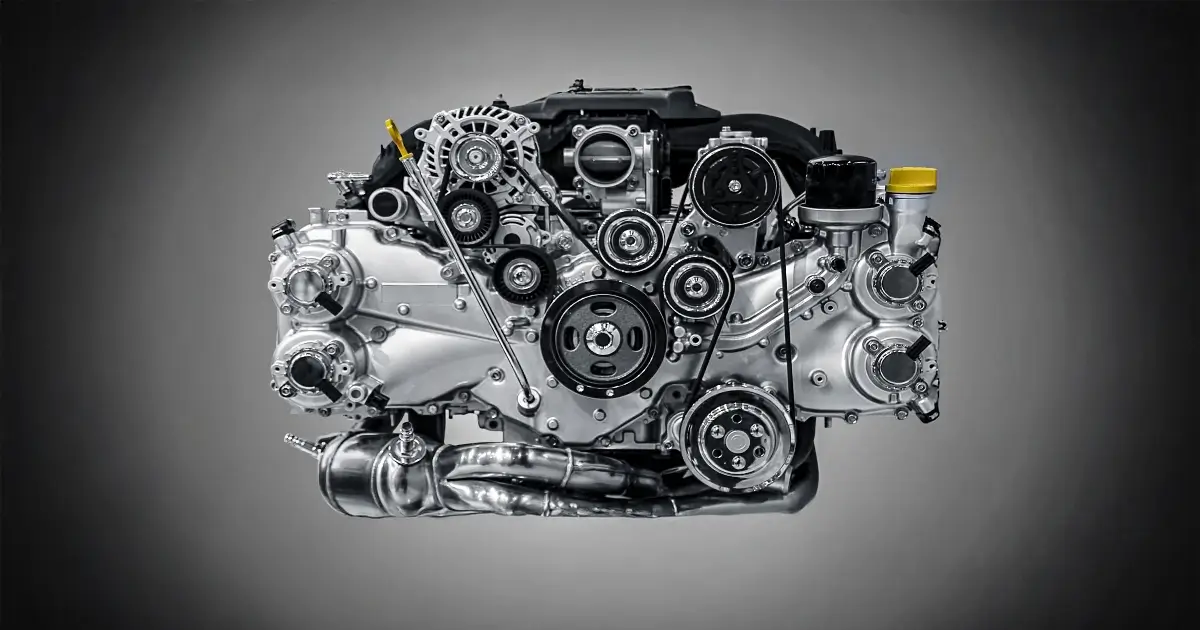Allow me to ask you this directly: do you rely on your brakes more than your intuitions? Most drivers hit the pedal at every slowdown, depending on their brake pads like they’re unbeatable. But here’s the fact nobody tells you your vehicle already has a built-in system that can slow you down naturally, steadily, and with way more control: engine braking.
It is not some racing driver technique; it’s something your vehicle is designed to do. I have used it on long hill descents, in heavy traffic, even in the rain, and every single time, I have felt like I had an additional layer of security that no one else was using.
What Engine Braking Really Is (And why you’re probably ignoring it)
Engine braking occurs when you remove your foot from the accelerator while staying in gear. Instead of rolling in neutral or racing for the brake pedal, you let the engine’s pressure slow the car down. The revs increase a little, you feel soft resistance, and suddenly you’re reducing speed without consuming your brake pads.
Many drivers think brakes are the only way to reduce speed. But brakes work through friction pads pressing against wheels; they heat up, wear down, and lose grip when overused. Your engine, on the other hand, does not “wear out” just because you use it to slow the vehicle. It’s like discovering an unseen protection net you’ve had all along but never used.
When I initially learned to engine brake, I observed something strange: my driving felt more relaxed. Instead of those harsh pedal jerks, I was moving with the road. That’s when I observed engine braking is not just about machinery changes the whole rhythm of your drive.
The Real Advantages: Control, Safety, and Savings
Why should you be concerned with engine braking when your vehicle already has completely good brakes? Simply because brakes alone can betray you.
- More command on descents. Ever sensed burning brake pads after a downhill stretch? That is brake fadeyour pads excessive heating until they are basically ineffective. Engine braking carries the load off them.
- Better stability in wet conditions. Hard braking in the rain can jam the wheels or trigger the anti-lock system. Engine braking reduces the car progressively, keeping traction.
- Fuel efficiency benefits. Modern fuel-injected engines stop fuel supply when coasting in gear, signifying that engine braking can really save fuel compared to coasting in neutral.
- Less wear and tear. Brakes are replaceable; harsh braking costs out of your pocket. Engine braking extends their longevity.
How to Do It Right (Without Damaging Your Car)
Engine braking does not harm your engine when done correctly fact, it’s something car makers create for. The key is to use it gently, letting the vehicle slow naturally when you lift off the accelerator.
On steep slopes, downshift to a lower gear with greater resistance, but avoid skipping gears suddenly. Combine gentle braking with engine braking only when you need additional braking power. Once practiced, it seems natural and makes driving smoother, more secure, and more controlled.
When Engine Braking Becomes Your Best Friend
Engine braking shines in conditions where traditional braking feels dangerous. If you’ve ever driven on:
- Hilly or mountainous roads – Keep you balanced without overheating brakes.
- Rainy highways – Prevents tire slip by using smoother deceleration.
- Heavy traffic – Makes your journey smoother and less jerky, maintaining passengers’ comfort.
- Emergency scenarios – If the brake system fades or partially fails, engine braking provides you with extra backup.
One personal experience: during a night journey on a highway, a random animal suddenly crossed. Instead of fearfully pressing the brakes, I instinctively lifted off the accelerator while pressing the brake steadily. That natural engine drag gave me the additional seconds to turn around safely. Without it, things could have been much worse.
Engine Braking Etiquette: What Smart Drivers Do
Like overtaking, engine braking also possesses its etiquette. You don’t want to confuse or endanger people when you slow down.
- Don’t overdo it. Too much downshifting just to show off isn’t wise, it startles passengers and risks slides.
- Tap brakes lightly. Even if the engine breaks, slowing your speed enough, a light brake switch on your brake lights warns drivers behind.
- Anticipate early. Engine braking works most effectively when you see slowdowns ahead and get ready, not when you’re already too close.
It’s about being the driver people feel safe following. Smooth, reliable, and always in control.
Also Read:
- Audi GT50 Concept: A Loud Reminder of Why Car Enthusiasts Fell in Love With Audi
- Nearly 30% of UK Drivers Believe Car Tax Should Be Based on Mileage — Survey
- Why Planes and Boats Escaped the Luxury Tax But Cars Didn’t
- Australia’s Headlight Confusion: Authorities Warn Drivers After Viral $250 Headlight Rule Goes Wild Online
- 2025 Hyundai Venue Facelift Launched in India – Full Details, Variants, and Price
Last Takeaway
Engine braking is not some racing skill; it’s the secret tool sitting under your nose. It provides you with smoother command, keeps your brakes new, saves fuel, and makes every drive more secure. The real question is: are you ready to trust more than just the pedal under your foot? Because after you learn engine braking, you will wonder in what way you ever drove without it.
